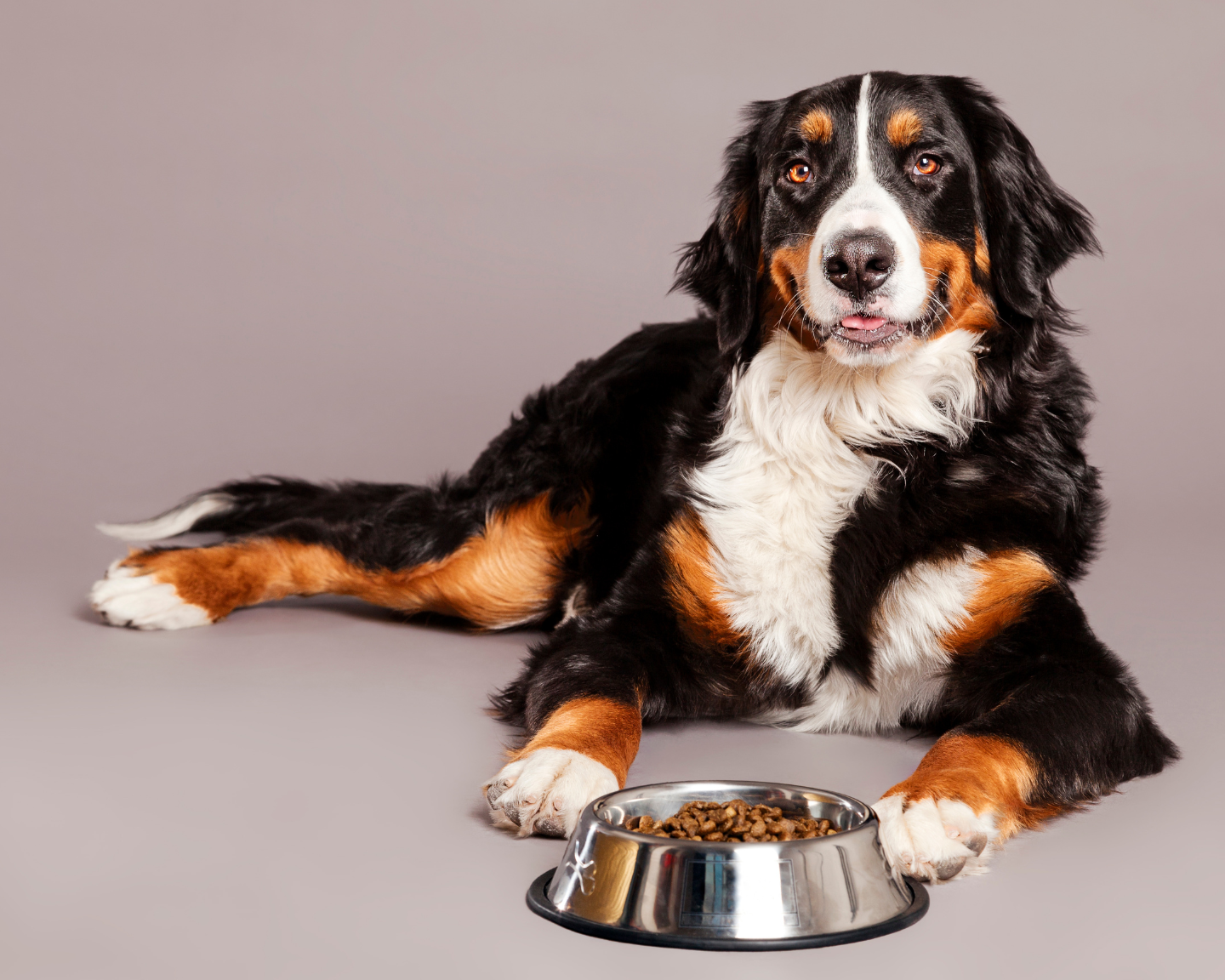

The Big Appetite: Dietary Considerations for Giant Breed Dogs
Giant breed dogs are truly remarkable. Their imposing size and gentle nature make them stand out in the canine world. Whether you share your life with a Great Dane, Saint Bernard, Newfoundland, or another giant breed, their unique needs are worth understanding, particularly when it comes to their diet. In this post, we'll explore the essential dietary considerations to ensure your gentle giant's optimal health and well-being.
The Giant Breed Challenge
Giant breed dogs are distinct not only in terms of size but also in their specific health challenges. The most prominent of these challenges is their susceptibility to joint issues. The sheer weight and size of these dogs put additional stress on their joints, making joint health a top priority for giant breed owners.

Diet's Role in Joint Health
Diet plays a crucial role in maintaining your giant breed dog's joint health. Proper nutrition can help control their weight, which in turn alleviates joint stress. Here's what you need to consider:
1. High-Quality Protein
Ensure that your giant breed dog's diet includes high-quality protein. Protein is essential for muscle development and maintenance, which, in turn, supports joint health. Look for protein sources like lean meats, fish, and poultry. Avoid excessive fat, which can lead to weight gain.
2. Controlled Calories
One of the key dietary considerations for giant breed dogs is calorie control. These dogs are at risk of obesity, which exacerbates joint issues. Work with your veterinarian to determine the ideal calorie intake for your dog based on their age, activity level, and specific needs. Choose a dog food that is formulated for large or giant breeds, as these often have controlled calorie levels.
3. Joint Supplements
Consider incorporating joint supplements into your dog's diet. These supplements typically contain ingredients like glucosamine and chondroitin, which can promote joint health. Speak to your veterinarian about the appropriate dosage and type of supplement for your specific giant breed.
4. Controlled Feeding Schedule
Establish a controlled feeding schedule for your giant breed dog. Avoid free-feeding, as this can lead to overeating and weight gain. Divide their daily food intake into two or three meals, and monitor portion sizes carefully.
5. Large-Breed Puppy Food
If you have a giant breed puppy, their nutritional needs are different from smaller breeds. Look for a high-quality large-breed puppy food that supports proper growth and joint development. These foods often contain controlled levels of calcium and phosphorus, essential for bone health.
6. Avoid Overly Rapid Growth
One of the unique dietary challenges for giant breed puppies is to avoid overly rapid growth. Excessively fast growth can lead to joint and skeletal problems. Controlled growth, achieved through appropriate nutrition, is crucial. Discuss a growth plan with your veterinarian to ensure your puppy grows at a safe and healthy pace.
7. Fresh Water
Proper hydration is essential for your giant breed's joint health. Ensure they have access to fresh, clean water at all times. Dehydration can exacerbate joint issues, so keep their water bowl filled.
Consult Your Veterinarian
Every giant breed dog is unique, and their nutritional needs can vary. Consult with your veterinarian to create a dietary plan tailored to your dog's specific requirements. They can offer guidance on the most suitable dog food, portion sizes, and supplements.
A Commitment to Health
Caring for a giant breed dog is a commitment to their health and well-being. Dietary considerations are a significant part of this commitment, especially when it comes to maintaining joint health. By following these guidelines and seeking professional advice, you provide your gentle giant with the best possible foundation for a long, happy, and healthy life.

